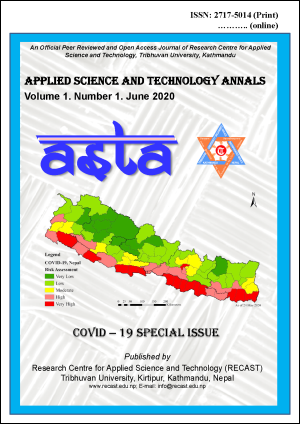Diversity and prevalence of gut parasites in urban macaques
DOI:
https://doi.org/10.3126/asta.v1i1.30270Keywords:
Cryptosporidium, Entamoeba, gastro-intestinal (GI), Macaca mulatta, zoonosisAbstract
Rhesus macaques (Macaca mulatta) are commonly found to inhabit various religious sites and cities in Nepal. Similar to other nonhuman primates, they are also the natural or reservoir host of several gut parasites. However, the status of gut parasitism, particularly in the urban dweller macaques, remains largely unexplored in the country. This study aimed to assess the prevalence and diversity of gut parasites in the monkeys inhabiting Bajrabarahee, an urban temple area in Lalitpur District, Nepal. A total of 42 fresh fecal samples of macaques belonging to five different troops, were collected and preserved in 2.5% (w/v) potassium dichromate solution. The fecal samples were processed by direct wet mount, concentration, and acid-fast techniques and examined under an optical microscope. All the fecal samples were positive with gut parasites. The parasites detected were Ascarid spp., Balantidium coli, Cryptosporidium sp., Eimeria sp., Entamoeba coli, Entamoeba spp., Giardia sp., hookworm, Strongyloides sp., Strongylid spp., Trichomonas sp., and Trichuris sp. Cent percent prevalence rate and high species richness with 12 parasites may indicate that they have impact on the gut health of these monkeys. This suggests the need of deworming the macaque population and enhancing public awareness for pro-active control of parasitic infection as well as of adopting the preventive measures to lessen the zoonotic transmission of the pathogenic parasites.
Downloads
Downloads
Published
How to Cite
Issue
Section
License
© Research Centre for Applied Science and Technology (RECAST)

